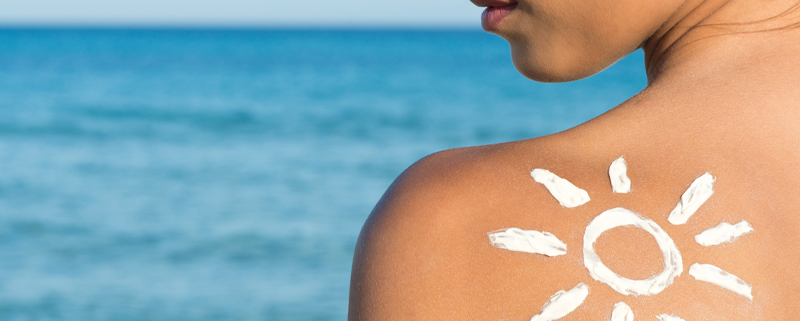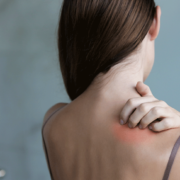Safe sun
Sun exposure is a vital phenomenon. The sun is the great synchroniser of all biological rhythms; it encourages the production and activation of vitamin D, necessary to absorb calcium in our bones, improve our overall muscle tone, reduce depression, and facilitate the production of endorphins, which control pain and ensure well-being. However, prolonged and intense exposure to the sun causes premature ageing of the skin and increases the risk of skin cancer. This effect is tied to the action of ultraviolet rays, which prompt the formation of free radicals. The skin does not forget the damaging consequences of prolonged or repeated exposure to external aggressions. They are recorded by the genetic heritage of our cells and maintained over time.
The irradiation or reflective power of surfaces exposed to the sun is extremely variable. So while grassland reflects 0.5-3% of radiations, the sand and sea reflect 20%, and snow 60-80%. It is also worth remembering that sweat dilutes the concentration of sun filters, making it necessary to reapply.
Sun filters
The use of sun filters, creams, milks, and oils is a valid means of protection insofar as these reduce the number of ultraviolet radiations that penetrate the skin. Local protection must be regularly reapplied before exposure to the sun. Children are particularly sensitive to sunlight, and therefore need more protection than adults.
All products containing sun filters indicate a sun protection factor. Regardless, it is worth remembering that the factor indicated on the packaging must be reduced by 30% because the amount tested in the laboratory is distinctly greater than that actually used during sun exposure. Therefore, a sun protection factor of 10 is actually equal to a protection factor of 7.
Sun filters, which are selected based on the characteristics of one’s own phototype, must be applied half an hour before exposure. For best performance, sunscreen should be applied every time a person is exposed to the sun, and should contain hypoallergenic substances able to guarantee a physical shield against ultraviolet rays.

 Specchiasol
Specchiasol Specchiasol
Specchiasol Specchiasol
Specchiasol Specchiasol
Specchiasol



 Specchiasol
Specchiasol Specchiasol
Specchiasol